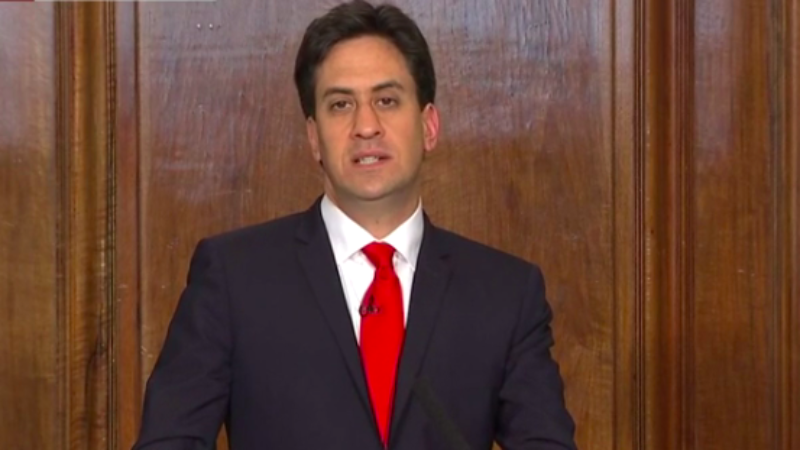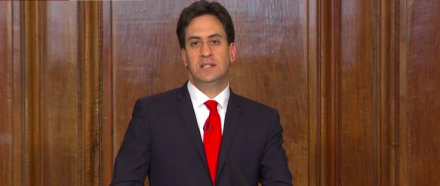

In November I wrote an editorial for Progress magazine headlined We need to talk about… losing’. At the time the Labour Party was telling itself that the fact that 450,000 people voted in a Labour leadership election in September 2015 changed the fact 11.3 million people had voted Tory in May earlier the same year. If the present situation of a prime minister versus a mayor of London heading the opposing sides in the EU referendum serves one purpose, it is to remind us how far from power we are.
Since that editorial we have had the Beckett Report, which failed to ask, let alone answer, key questions about why we fell two million votes short. The former Foreign Secretary’s duty should have been to put on record why Labour lost and sketch out a route back to power regardless of how unpopular that was with the current leader’s office. When the party decides it wants to win again the blueprint for doing so should have been found in the pages of her report. Instead that work will need doing afresh.
But it is the other loss that we must not avoid. It is often remarked that the modernisers are more keen to talk about why Labour lost the country rather then why they lost the party. This is not a question that will be ducked at Progress Political Weekend taking place today and tomorrow at the NUT’s Stoke Rochford conference centre located outside Grantham.
There is an understanding of last summer needed and an intellectual renewal required. Progress started this with a ‘listening tour’ across 20 cities and now it’s time to focus on the future.
Here are three things we all must learn and internalise:
First: The power to change, not changing who is in power
It’s a reluctant but true conclusion that many of our fellow party members thought the ‘anyone but Corbyn’ candidates were more interested in the trappings of power, not the ability to transform people’s lives. As if they drew their inspiration from the ability to have the ministerial car, private office and chance to join the privy council rather than implement the values of social justice that led all of us to join this great party. In my heart of hearts I believe this to be so far from the truth that it shouldn’t warrant saying. Regretfully it does.
Inside us all is a mini protester wanting to change the world, but the reason why lots of us spend our time campaigning for a political party and not 38 Degrees is not because we believe protesting is beneath us but because it is insufficient to the challenges we face. Modernisers are often described as technocrats or managerial, but the task of inspiring 11 million people plus to vote Labour requires more skill, strategy and substance then getting half a million to join a protest march. We must show that our energy spent on winning elections is undertaken because we want the power to change the world, not just to change the people in power.
Second: Share your anger about the problems, meet the problems with answers
Under Ed Miliband it was often said ‘anger wasn’t enough – the public wanted answers’. Party members feel differently. In the summer there was palpable anger shown towards the three ABC candidates and their supporters for not seeming angry at the government for what they were doing to Britain’s poorest. We cannot let this happen again. The reality is we modernisers are the most angry party members about two things: first, the fact that there is a Tory government at all – had we as a party made the right choices we could have stopped the coalition in 2010 and a Tory majority in 2015; and second, that the Tories are ruining the public services that we rebuilt in office. We believe those services make our country stronger, fairer and more prosperous. Worst of all, Tory ministers argue that some of the very measures they are using to ruin those services are a continuation of Labour government policies. They are nothing of the sort.
While the ‘angry man in the pub’ rants of the Labour party will look ugly to the public at large, we know it is our anger that gets us out of bed on those cold, wet and windy mornings to campaign for hard-working Labour representatives this May, regardless of who controls the leadership.
Third: Share the task of winning more widely
Understanding why people vote Tory is not the same as believing they were right to do so, but it is crucial to stopping them doing so again in the future. Fabian Society research shows that four out of the five voters Labour needs in 2020 will come from those who voted Tory in 2015. These votes are transformative because they count as double – one off their pile, one on to ours – but crucially these people are not ‘Tories’; they are just people who happen to have voted for that party in the past. These are not card-carrying members nor ‘rightwing’ people. In fact many of them were seriously considering voting Labour last year. We unfortunately failed to seal the deal and paid a heavy price. These people, however, are not lost to us forever and there is no certainty that the Tories will win in 2020 or thereafter. As the cabinet knock lumps out of each other an opportunity opens up for us if Labour is serious about protecting its own people, can be trusted with taxpayers’ money and contests the national story of England and Britain.
To not repeat the mistakes of the past this work must not be done in the corridors of Westminster but out in the country in post-canvassing policy discussions. We can all be better at hearing what the voters actually say rather than what we want to hear. What’s missing are the forums to turn people’s concerns into new and innovative solutions. This cannot be about going back to the 1990s– the country and our economy are so utterly changed that something very different is needed. We can draw our inspiration to be in power from the achievements of Labour in the 1940s, the 1960s and the start of the millennium.
But the programme that the next transformative Labour government puts into practice will be something quite different again.We need to make sure the space is available for party members to think about how we get there. The Labour party has become an unpleasant grouping if you want to engage online or attend a meeting. Canvassing is becoming more hostile as voters question our commitment to the basics: national security, our monarch and key alliances in the world. But it can be better than this. This will not always be the case. We must build the inclusive party we seek and the optimism we thrive for.
Progress will do its part to lead this debate in the party and provide forums online, in Progress magazine, and at our events where people from across the party who want to change the world are listened to, not shouted down. But first we have to talk about losing, listen and change.
Richard Angell is director of Progress. Follow the debate at Progress political weekend on Facebook and Twitter using the hashtag #ppw16




More from LabourList
Letters to the Editor – week ending 15th February 2026
‘Labour council candidates – it’s tough, but all is not lost’
‘Labour won’t stop the far right by changing leaders — only by proving what the left can deliver’